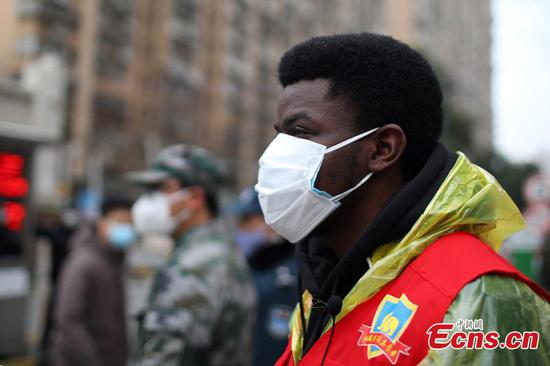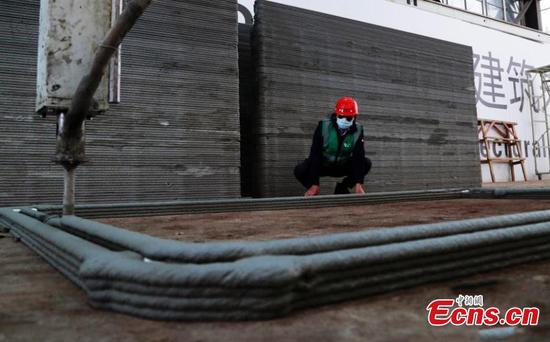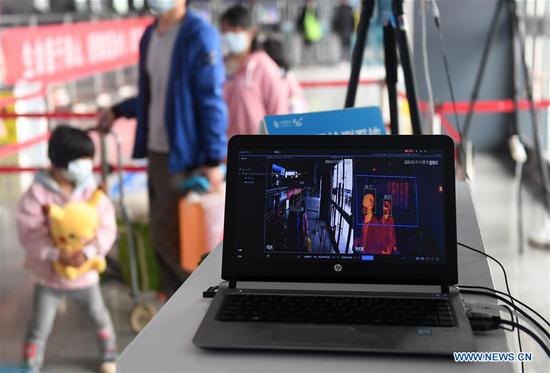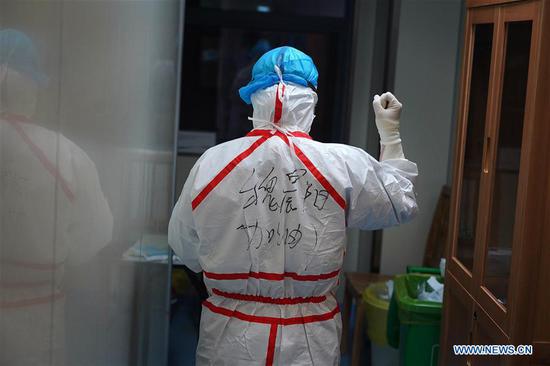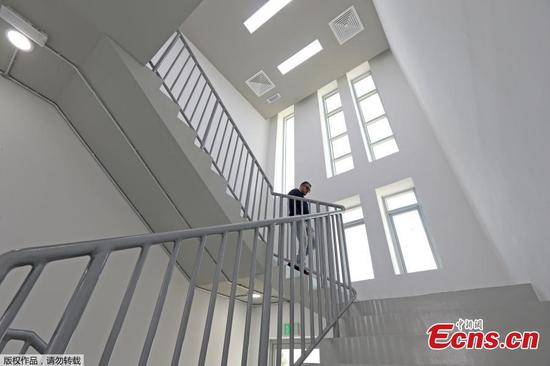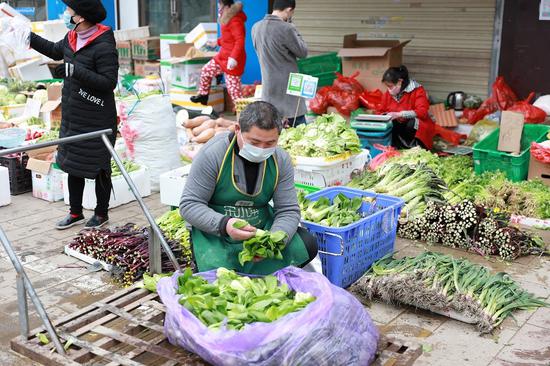Although the beginning of this year's new semester has been postponed over safety concerns amid the outbreak of the novel coronavirus, students in China have never given up studying.
During the special period, Chinese students have access to various classes online or study via television. In addition to their regular studies, students are also required to learn knowledge about epidemic prevention and control and psychological health, according to the Ministry of Education.
The following are snapshots of teachers' experience teaching from home and students taking online classes across the country.
TEACHERS TURN INTO ONLINE ANCHORS
Facing a camera, instead of children in the classroom, Chen Hui, an English teacher with the Lushan International Experimental Primary School in Changsha, capital of central China's Hunan Province, was giving a vivid class to her students watching on screens at home as she showed some pictures of a family tree on the blackboard.
Wu Xingchun, an English teacher at a middle school of Ningshan County, northwest China's Shaanxi Province, on the other hand, regarded online teaching as a challenge. Wu lectures to more than 500 ninth graders in the mountainous county.
Without face-to-face interaction with her students, Wu needed to carefully prepare Powerpoint documents, summarize major points from the textbook and find useful knowledge for the students.
"The previous 45-minute class is compressed into a 25-minute online class now, so we have to use highly concise teaching language and offer concentrated knowledge points to students," Wu said.
At the very beginning, Wu had to practice several times, and then listen to the recording repeatedly to improve her online teaching.
Wang Lufeng, 37, an associate professor at the College of Food Science and Technology of Huazhong Agricultural University, hasn't stepped outside the front door after returning to his hometown in Jinxiang County, east China's Shandong Province from Wuhan during the Spring Festival.
At the end of January, the university instructed Wang to prepare for the online classes which were scheduled to start in mid-February.
Preparing for classes was not overly difficult for Wang, however, the poor network signal in the rural town had become a big problem. On Feb. 10 when the online class began, Wang came up with a good idea to set up his classroom on the roof for the signal was better there.
As the camera turned on, his students were shocked by the rooftop classroom on their screens, and felt moved by Wang's efforts.
"The environment around my teacher is very quiet, accompanied by birds tweeting. He tried his best to deliver class on time," one of Wang's students said, adding that the students were all deeply moved and encouraged by the teacher's spirit of overcoming difficulties.
After class, Wang's hands had turned red in the bitter winter wind, but he still continued to answer students' questions patiently.
"Thank you for your understanding and cooperation. I hope the epidemic will end as soon as possible and all the students will return to school in good health," Wang said as he ended the class.
NEVER STOP LEARNING
Tang Mingying, a high school graduate from southwest China's Guizhou Province, turns on the TV at 9 a.m. to watch the online classes launched by the provincial education department every day.
"There are only four months to go before this year's college entrance examinations," Tang said.
When first hearing about the postponement of the start of the school semester, Tang, from Qianxi No. 1 Middle School in Qianxi County in the city of Bijie, felt very anxious.
To minimize the impact of the epidemic on the learning of senior high school students in the province, the Guizhou provincial education department and provincial radio and television network company launched the online classes for senior high school students on Feb. 3.
Now with the help of the "cloud class," Tang has more confidence in preparing for the college entrance examinations.
About 8,000 students in the county will take the college entrance examinations this year, many of whom are from poor mountainous areas.
Song Hongxiang, a head teacher from Qianxi No. 1 Middle School, said that there are more than 30 students in his class and nearly half of them are from rural villages. They hope to get good results in the college entrance examination and go out of the mountains to study at universities in the future.
Over the past week, Chen Zining, a primary student at the Changsha Experimental Primary School in central China's Hunan Province, watched a TV program on the prevention of the novel coronavirus at 8:30 a.m. every day. The program was made by the provincial education department to help the students learn about the virus and relevant prevention measures.
The city's education bureau prohibited schools from teaching students new classes, except for the graduates in middle schools. The online classes should only focus on science, mental health, home exercise, comprehensive practice, and winter vacation homework comments, the bureau required.
Children have been fascinated by the TV courses on epidemic prevention, which are displayed in a variety of forms such as letters, cartoons and songs.
"At first, I was worried that my child would be bored at home, but now I find many online courses are very useful and interesting. In fact, children are freer taking online classes as they can stand up to have a break at any time when they feel tired," said Peng Jia, a parent from Changsha.

















